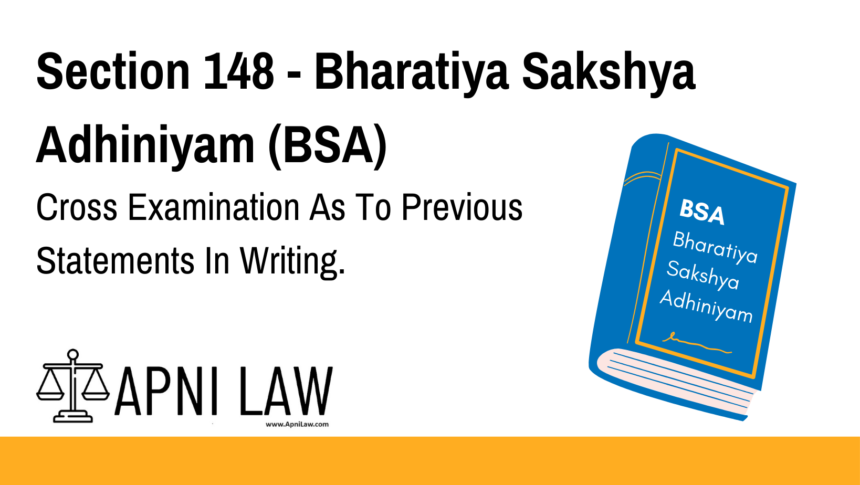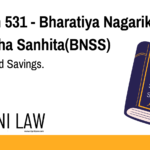Code: Section 148 BSA
A witness may be cross-examined as to previous statements made by him in
writing or reduced into writing, and relevant to matters in question, without such writing
being shown to him, or being proved; but, if it is intended to contradict him by the writing,
his attention must, before the writing can be proved, be called to those parts of it which are
to be used for the purpose of contradicting him.
Explanation of Section 148 BSA
Section 148 of the Bharatiya Sakshya Adhiniyam deals with the procedure and limitations involved in cross-examining a witness based on their prior written statements. This section plays a crucial role in maintaining fairness during trial, especially in assessing a witness’s credibility.
Key provisions:
- A witness can be questioned about previous written statements during cross-examination even if the document is not shown to him immediately.
- However, if the goal is to contradict the witness using the written statement, the specific parts of the writing intended to be used must be brought to the witness’s attention before introducing the writing as evidence.
- This protects the witness’s right to respond to allegations of inconsistency and ensures procedural fairness.
This section closely aligns with the principle that a witness should not be taken by surprise when contradicted by earlier statements and should have an opportunity to explain the inconsistency.
Illustration
Example 1: Questioning Without Showing the Document
During cross-examination, the defense lawyer asks a police officer, “Did you mention in your earlier report that the weapon was found near the gate?” The lawyer is not required to show the report at this point unless intending to contradict the officer.
Example 2: Contradicting with a Prior Statement
If the same officer denies making such a claim in the report, and the defense wants to prove that the officer indeed made that statement, the defense must first point out the exact portion of the report that contradicts the testimony. Only then can the report be used to impeach the witness.
Common Questions and Answers on Section 148 BSA
- Can a witness be asked about prior written statements without showing the document?
Yes. As per Section 148, the document does not need to be shown immediately unless the party intends to contradict the witness using it.
- What must be done before using a prior statement to contradict a witness?
The witness must be directed to the specific part of the statement that is to be used for contradiction before it is formally introduced as evidence.
- Why is this procedure important?
It ensures the witness is given a fair opportunity to explain any inconsistency, and the court is aware of the precise contradiction being alleged.
- Is this section applicable to both civil and criminal cases?
Yes, the evidentiary principle in Section 148 applies across legal proceedings where witness credibility and consistency are relevant.
Conclusion
Section 148 of the Bharatiya Sakshya Adhiniyam safeguards the integrity of cross-examination by providing a structured approach to using prior written statements. It helps in assessing the reliability of witnesses while ensuring procedural fairness.
For detailed legal analysis, illustrations, and expert insights on Indian evidence law, explore more on ApniLaw.








